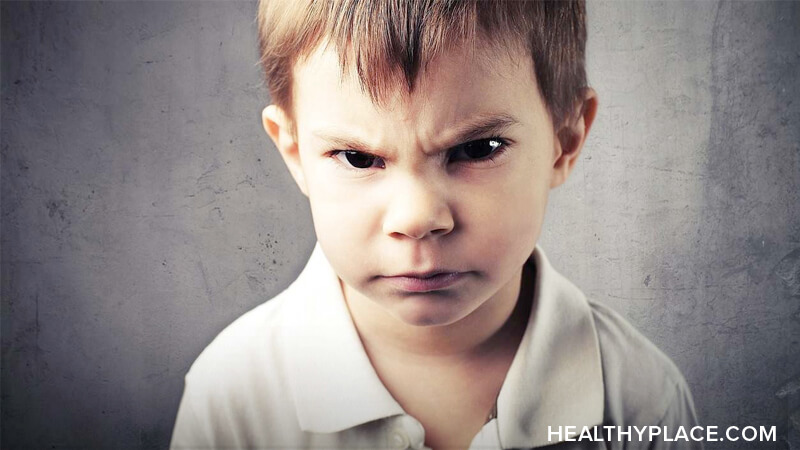Brain Disorders: Mental Disorders vs. Behavioral Disorders

Disorders of the brain include both behavior disorders and other psychiatric illnesses. The primary difference between a behavior disorder and another type of psychiatric disorder is the presence of choice. Psychiatric conditions are considered to be involuntary while in behavior disorders, choices are essential. This is not to suggest that behavior disorders do not also have physical roots, however.
What Is a Behavior Disorder?
A behavior disorder is a disorder wherein conscious choice is necessary. The classic example of a behavior disorder is a substance-related disorder (such as substance abuse or substance dependence) as the person suffering from the disorder makes the conscious decision to use the substance. Another example of behavior disorders are eating disorders such as anorexia nervosa.
What Is a Mental Disorder That Is Not a Behavior Disorder?
A mental disorder that is not behavioral in nature is something with symptoms that are considered to be involuntary. Examples of these types of illnesses include Alzheimer's disease, schizophrenia, mood disorders such as bipolar disorder, and anxiety disorders such as social anxiety disorder.
Heritability of Behavior Disorders
While classic thinking may have suggested that non-behavior disorders are more inheritable than behavior disorders, the study Psychiatric 'Diseases' Versus Behavioral Disorders and Degree of Genetic Influence shows differently. According to the study, the heritability estimates are as follows:
- Bipolar disorder – 85%
- Schizophrenia – 81%
- Alzheimer's disease – 75%
- Cocaine use disorder – 72%
- Anorexia nervosa – 60%
- Alcohol dependence – 56%
- Sedative use disorder – 51%
- Cannabis use disorder – 48%
- Panic disorder – 43%
- Stimulant use disorder – 40%
- Major depressive disorder – 37%
- Generalized anxiety disorder – 28%
While non-behavior disorders top the list, many behavior disorders are more heritable than non-behavior disorders. This suggests a strong genetic linkage and physical predisposition to behavior disorders in some (What Causes Mental Illness? Genetics, Environment, Risk Factors).
Childhood Behavior Disorders
Behavior disorders are often seen, specifically, in children (Do Children Have Mental Health Problems Too?). While all children act out from time to time, behavior disorders in children are diagnosed when the conduct becomes extreme and is considered pathological. Two of the most common psychological, behavior disorders in children are oppositional defiant disorder and conduct disorder.
Behavior Disorder in Children – Oppositional Defiant Disorder
According to Medscape, oppositional defiant disorder is defined in the Diagnostic and Statistical Manual of Mental Disorders, Fifth Edition (DSM-5) as a recurrent pattern of angry/irritable mood, argumentative/defiant behavior, or vindictiveness lasting at least six months. To fulfill the diagnosis, an individual must have at least four symptoms from the following categories:
Angry/Irritable Mood
- Often loses temper
- Often touchy or easily annoyed
- Often angry and resentful
Argumentative/Defiant Behavior
- Often argues with authority figures or with adults (if a child or adolescent)
- Often actively defies or refuses to comply with requests from authority figures
- Often deliberately annoys others
- Often blames others for his or her mistakes or poor behavior
Vindictiveness
- Has been spiteful or vindictive at least twice within the past 6 months
Symptoms are almost always present at home and may or may not be present in the community and at school.
Behavior Disorder in Children – Conduct Disorder
Conduct disorder is considered to be one of the most difficult psychological disorders to treat in children as it involves many troubling behaviors such as oppositional and defiant behaviors as well as behaviors like lying and stealing.
Conduct disorder is defined in the DSM-5 as a repetitive and persistent pattern of behavior in which the basic rights of others or major age-appropriate societal norms or rules are violated. This manifests as the presence of at least three of the following 15 criteria in the past 12 months from any of the categories below, with at least one criterion present in the past six months:
Aggression to people and animals:
- Often bullies, threatens, or intimidates others
- Often initiates physical fights
- Has used a weapon that can cause serious physical harm to others (e.g., a bat, brick, broken bottle, knife, gun)
- Has been physically cruel to people
- Has been physically cruel to animals
- Has stolen while confronting a victim (eg, mugging, purse snatching, extortion, armed robbery)
- Has forced someone into sexual activity
Destruction of property:
- Has deliberately engaged in fire setting with the intention of causing serious damage
- Has deliberately destroyed others' property (other than by fire setting)
Deceitfulness or theft:
- Has broken into someone else's house, building, or car
- Often lies to obtain goods or favors or to avoid obligations (ie, "cons" others)
- Has stolen items of nontrivial value without confronting a victim (eg, shoplifting, but without breaking and entering; forgery)
Serious violations of rules:
- Often stays out at night despite parental prohibitions, beginning before age 13 years
- Has run away from home overnight at least twice while living in the parental or parental surrogate home, or once without returning for a lengthy period
- Is often truant from school, beginning before age 13 years
The disturbance in behavior must cause clinically significant impairment in social, academic, or occupational functioning. If the individual is age 18 years or older, they must not meet the criteria for antisocial personality disorder.
APA Reference
Tracy, N.
(2019, October 23). Brain Disorders: Mental Disorders vs. Behavioral Disorders, HealthyPlace. Retrieved
on 2026, February 25 from https://www.healthyplace.com/other-info/mental-illness-overview/brain-disorders-mental-disorders-vs-behavioral-disorders



